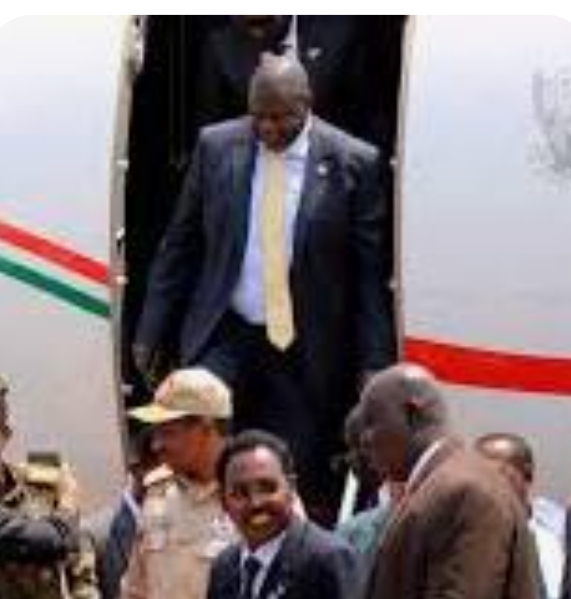AU mediators arrived in Juba to prevent renewed conflict after VP Riek Machar's house arrest. Kiir's government accuses him of inciting rebellion. The AU and regional leaders call for Machar's release, warning of risks to the 2018 peace deal.
African Union Mediators Land in South Sudan to Prevent Renewed Conflict


African Union mediators have arrived in South Sudan’s capital, Juba, for critical talks aimed at preventing a new civil war following the house arrest of First Vice President Riek Machar last week.
President Salva Kiir’s government has accused Machar, a longtime political rival who previously led rebel forces during the 2013-2018 civil war, of attempting to incite a fresh rebellion. That war resulted in the deaths of hundreds of thousands of people. Machar’s detention last Wednesday came after weeks of clashes in the northern Upper Nile state between government forces and the White Army militia. While Machar’s forces were historically allied with the White Army during the civil war, they have denied any present-day connections to the militia.
The AU delegation arrived at Juba’s airport on Wednesday afternoon, accompanied by the "Council of the Wise," a mediation body that includes former Burundian President Domitien Ndayizeye and former Kenyan judge Effie Owuor.
In response to their arrival, Machar’s SPLM-IO party issued a statement warmly welcoming the delegation and expressing support for their efforts to ease tensions and reinforce the peace process. Meanwhile, the AU’s Peace and Security Council released a statement on Tuesday demanding Machar’s “immediate and unconditional release,” warning that recent developments jeopardize the fragile 2018 peace agreement that ended the previous civil war.
Separately, Kenya’s former Prime Minister Raila Odinga visited Juba on Monday on behalf of an East African regional bloc to mediate between the opposing factions. While Odinga was able to meet with President Kiir, he reported that he was not permitted to see Machar.
Analysts suggest that Kiir, 73, is taking steps to consolidate his power amid internal dissent within his political camp. Additionally, the ongoing war in neighboring Sudan has exacerbated security concerns, as it has led to an influx of weapons into the region.
The 2013-2018 civil war was largely defined by ethnic divisions, with fighters from the Dinka ethnic group—the country’s largest—rallying behind Kiir, while those from the Nuer, the second-largest ethnic group, aligned with Machar.

 বাংলা
বাংলা  Spanish
Spanish  Arabic
Arabic  French
French  Chinese
Chinese 
